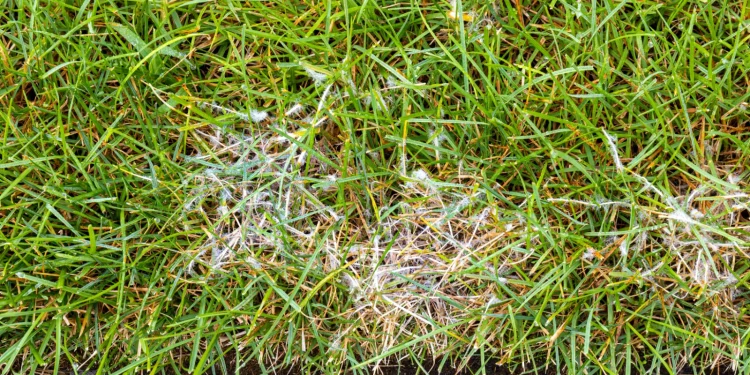Bermuda grass is a choice for many homeowners due to its durability and lush green appearance. Yet, even the hardiest turf can succumb to diseases, turning your perfect lawn into a patchy, discolored eyesore.
Have you noticed unusual brown spots or wilting patches on your lawn? You could be witnessing the early signs of Bermuda grass diseases.
Let’s explore common lawn diseases affecting Bermuda grass. Gain expert tips for identifying, treating, and preventing them. Keep your lawn healthy and vibrant.
Table of Contents
Common Bermuda Grass Diseases
Several diseases can affect Bermuda grass, each with distinct symptoms and treatment methods. Some of the most common diseases include:
Brown Patch Disease
This disease causes circular brown patches on your lawn in humid or wet conditions. These patches may have a smoke ring appearance around the edges.
Dollar Spot Disease
Dollar spot disease causes small, silver dollar-sized patches on your lawn. The affected areas will have bleached blades of grass with reddish-brown spots.
Fairy Ring Disease
This disease creates circular rings of dead grass with a dark green outer edge. The center of the ring may be filled with mushrooms or other types of fungus.
Identifying Bermuda Grass Diseases
The key to successfully treating any lawn disease is identifying it early. Here are some tips for spotting common diseases affecting Bermuda grass:
Look for Unusual Discoloration or Wilting in Your Lawn
Bermuda grass is known for its bright green color, so any brown or yellow patches could be a sign of disease. Also, keep an eye out for wilting or drooping blades of grass.
Check for Strange Growth Patterns
Fungi and other pathogens can cause unusual growth patterns in Bermuda grass. Look for odd shapes or sizes in your patches of grass.
Look for Signs of Pests
Some diseases, such as fairy ring disease, are often accompanied by pests like moles or voles. Keep an eye out for any signs of pests on your lawn.
Treating Bermuda Grass Diseases
It’s vital to take action right away. Here are some tips for treating common diseases:
Apply Fung Ficides or Pesticides
Applying a fungicide or pesticide may help control and prevent further spread of the disease. Be sure to follow the instructions and use protective gear while applying.
Adjust Watering Habits
Water your lawn only when needed. Avoid evening watering to prevent prolonged grass moisture.
Remove and Replace Affected Areas
In severe cases, remove and replace the affected patches of Bermuda grass. It will help prevent further spread of the disease to other areas of your lawn.
Preventing Bermuda Grass Diseases
The best defense against Bermuda grass diseases is prevention. Here are some tips for lawn disease control to keep your lawn healthy and disease-free:
- Properly maintain your lawn
- Use disease-resistant grass types
- Avoid over-fertilizing
- Monitor for signs of stress or damage
If you are looking for lawn maintenance services, consider Dempster Brothers Lawn Care. They offer expert lawn care, aeration, fertilization, and mowing tailored to your lawn’s needs.
Consider These Expert Tips on Spotting and Treating Bermuda Grass Diseases
With the knowledge and preventative measures, you can keep your Bermuda grass lawn looking lush and vibrant all season long. Regularly inspecting your lawn for signs of disease, taking quick action when necessary, and following proper maintenance practices will help keep your lawn in top condition.
Remember, a healthy lawn is the best defense against common Bermuda grass diseases! So, be proactive and give your lawn the care it needs.
Did you find this article helpful? If so, check out the rest of our site for more informative content.


 Home
Home









